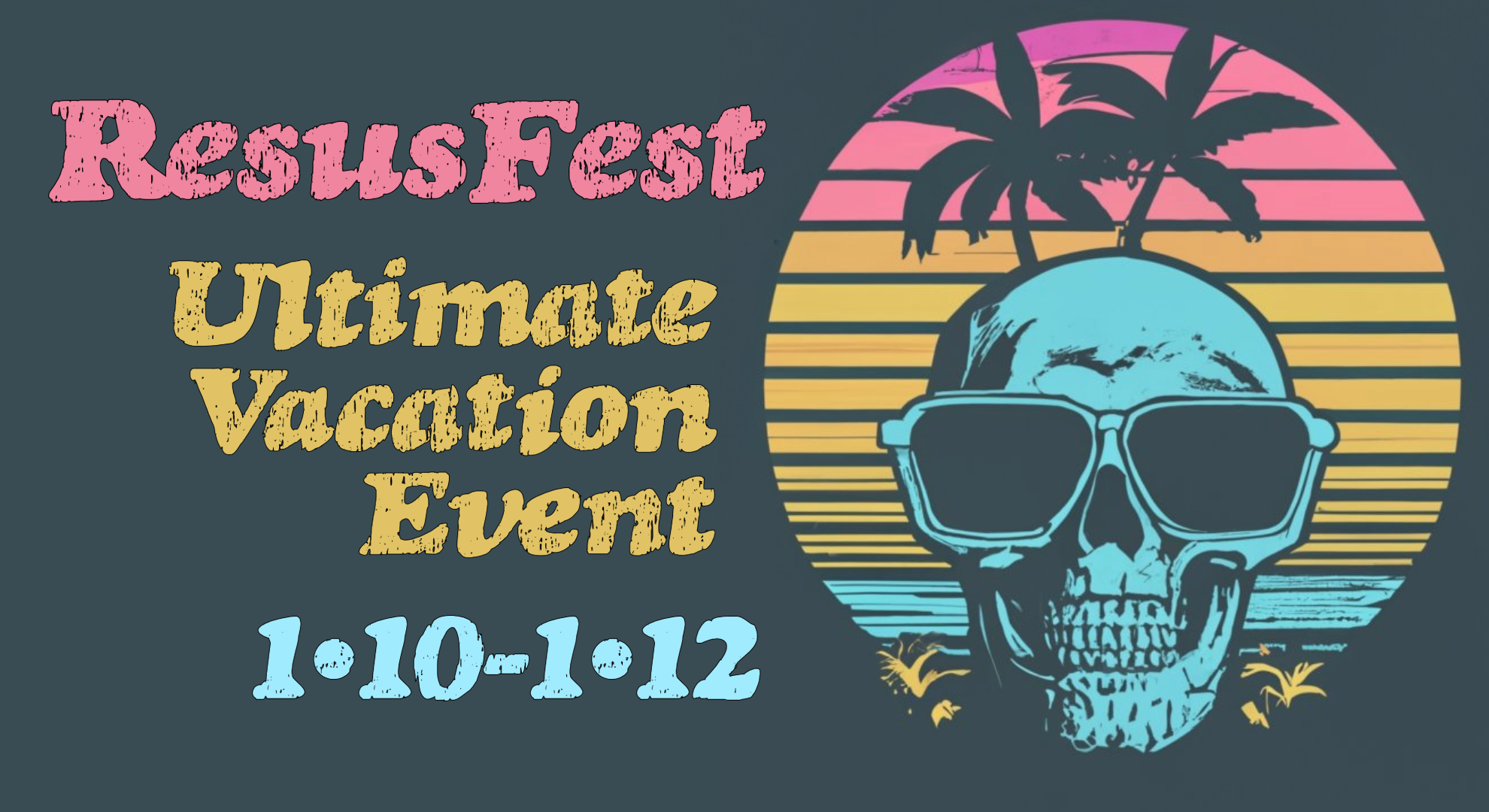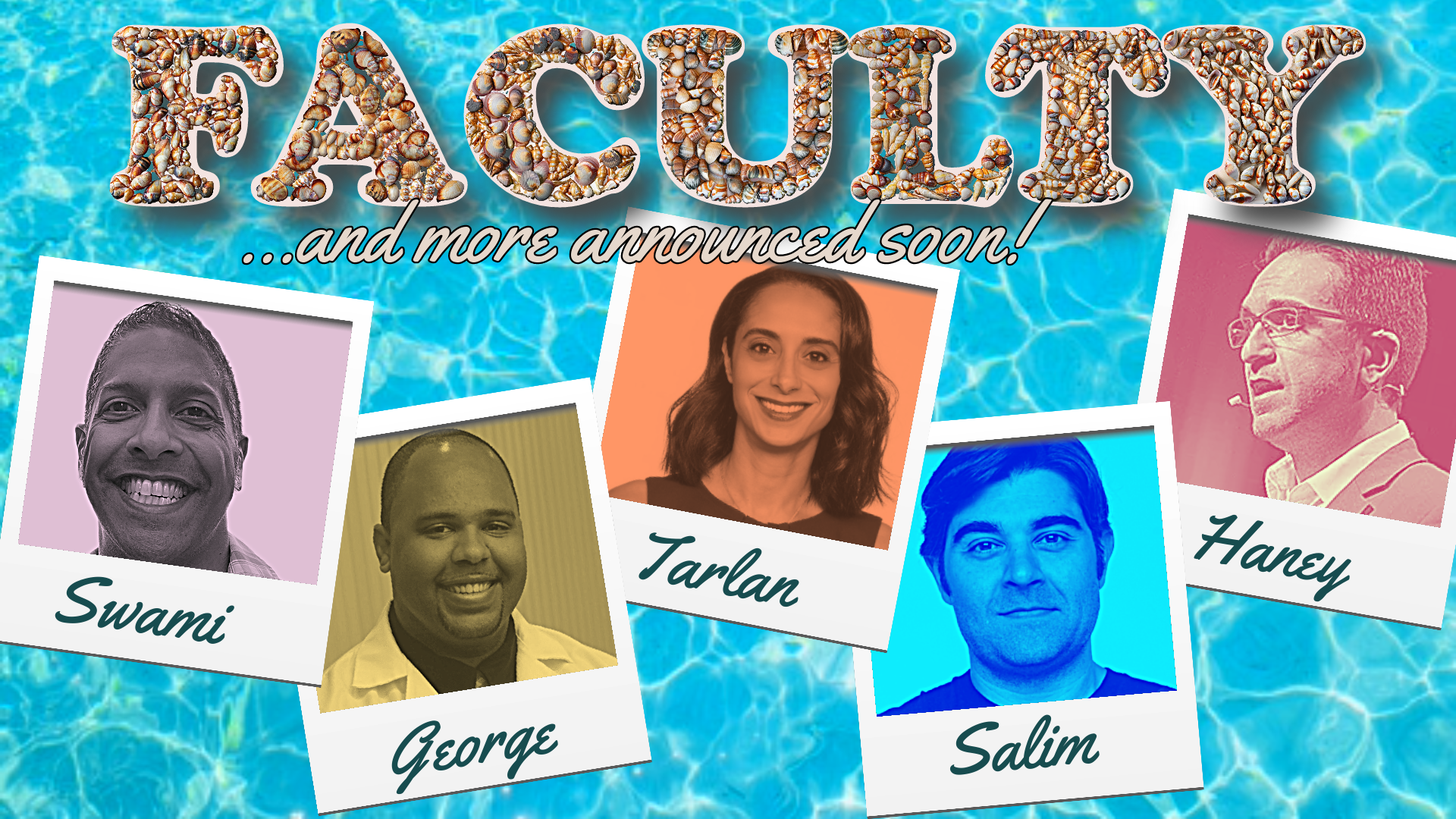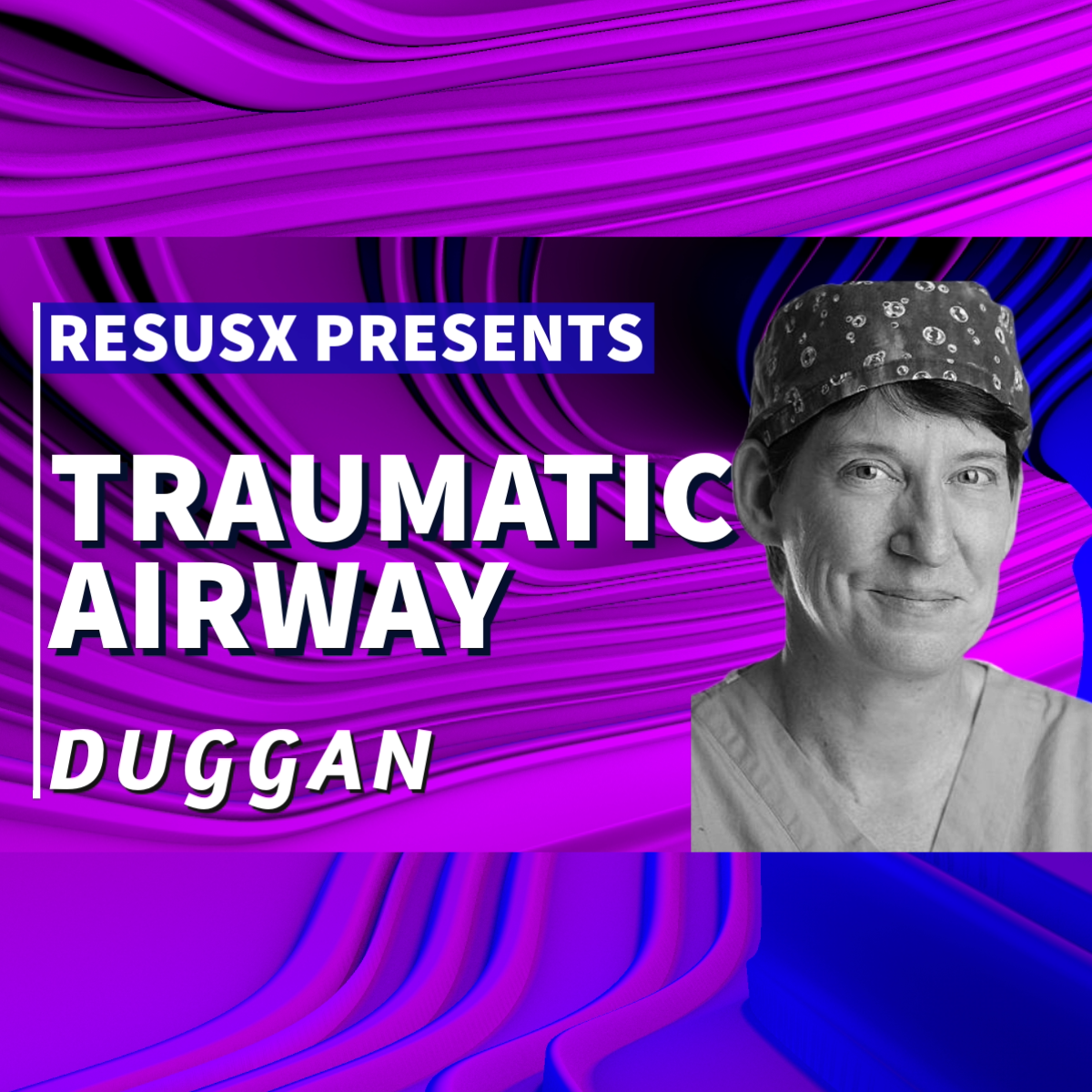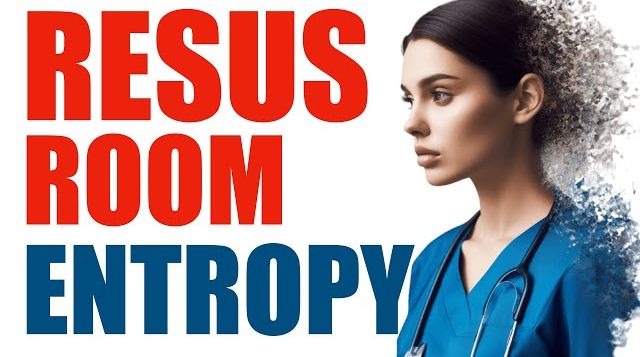
The Educational Newsletter From CriticalCareNow!
Welcome to this week's newsletter. We've got a ton of stuff to cover with you, so let's get right to it.
- Time to take a vacation? Why not learn some resuscitation while working on that tan?
- Come see a video of what what down in Philly for ResusX:Reset
- Watch Dr. Laura Duggan talk about pearls & pitfalls in the trauma airway
- Resus Room Entropy and why is matters.
- We're talking with Dr. Matt Salzman about Tox in a Code! Free for all ResusNation Members
- Chris Reilly is talking sinus tachycardia....yes, sinus tach but before you scroll it's important to consider the differentials in critical care
This week's newsletter is pretty amazing, so let's get going with Last Week Now!



Embrace Sunshine, Learning, & Fun in January
January can be a chilly and gloomy month, but we have the perfect solution to brighten up your winter. Welcome back to ResusFest, one of our most beloved resuscitation conferences! We're thrilled to invite you to this exceptional event set in a luxurious all-inclusive resort, featuring a star-studded faculty.
Experience the Intimacy of ResusFest
At ResusFest, we prioritize an intimate and immersive experience for our attendees. With only 50 registrations available, you'll have the opportunity to engage in small group discussions, stimulating debates, concise lectures, and more. This is not your typical vacation CME conference; it's so much more.
Beyond Education: Unwind and Recharge
While you're with us, we encourage you to enjoy the finer things in life. In addition to our enriching sessions, we have planned delightful dinners, beach excursions, invigorating morning yoga sessions, and much more. ResusFest is designed to offer an all-inclusive experience that combines professional growth with relaxation.
This is a CME / CEU Experience
Don't miss the chance to enhance your resuscitation skills and your tan simultaneously. Registration is now open for this CME/CEU event. Secure your spot at ResusFest today, and escape the January blues in style.

ResusX:Live Was 🔥
As I said in my intro video we wrapped a huge week of conferences last week. I fell behind on the newsletters, but it was worth it to meets so many of you in Philly and online. I also met some of my heroes in person including @TheVascularGuy. It turns out he is also an amazing videographer and made this video for ResusX.
If you have FOMO from missing the conference, don't worry we are opening registration for replay this week. Keep an eye on your email.
In the meantime, check out his video here.


Traumatic Airway
In this episode, Dr. Laura Duggan, an Associate Professor in the Anesthesia Department in Ottawa, delves into the complexities of traumatic airway management. Dr. Duggan emphasizes the importance of combining opinions and evidence to provide the best patient care. She highlights the challenges of maintaining airway management skills and the shift toward evidence-based decision-making. Dr. Duggan also discusses the risks associated with blunt and penetrating airway trauma, the significance of assessing the mechanism of injury, and the value of visualizing both above and below the glottic entry during intubation. She encourages collaborative efforts between specialties and the use of nasopharyngoscopy for assessing airway trauma while stressing the importance of teamwork in critical situations.
Check out her amazing video now! Explore ResusX for more content from Laura and our other exceptional faculty!

Never Take Your Foot Off the Gas During Resuscitation
Cliff Reid (@CliffReid) is a renowned resuscitationist and highlights a critical aspect of managing high-stress resuscitation scenarios. He describes how, after successfully intubating a patient and achieving initial stability, there tends to be a collective sense of relief in the room. This momentary relaxation can lead to a lapse in vigilance as team members engage in banter, review ultrasound images, or discuss unrelated topics. Reid emphasizes the importance of maintaining situational awareness, as resuscitation rooms have a natural tendency to transition from order to disorder, akin to the concept of entropy in thermodynamics. To counter this trend, it requires continuous effort and focus to prevent or reverse the chaos that can ensue, especially as fatigue sets in during a resuscitation.
Cliff Reid's insight underscores the need for resuscitation teams to remain alert and cohesive throughout the entire process, recognizing that the initial success of intubation should not lead to complacency. It's a reminder that managing chaos in a resuscitation room is an ongoing, active process that demands unwavering attention to detail and teamwork to ensure the best possible outcomes for critically ill patients.
Enjoy his video.



Tox in a Code!
In this podcast episode, Dr. Matt Salzman discusses various topics related to toxicology. He touches upon the use of high-dose insulin therapy for specific poisoning cases, the application of lipid emulsion therapy, and the effectiveness of methylene blue in certain toxicological situations. Throughout the conversation, they emphasize the importance of cautious monitoring and the potential risks associated with these treatments. Additionally, they explore some cutting-edge developments in the field of toxicology.
Five Key Takeaways:
- High-dose insulin therapy is recommended for beta-blocker or calcium channel blocker overdoses, but its use should be determined by the provider's comfort level and the patient's clinical status.
- Lipid emulsion therapy has limited evidence of effectiveness in most poisoning cases, with strong recommendations mainly for local anesthetic toxicity.
- Methylene blue's role in toxicology remains uncertain, with inconclusive evidence of its benefit in vasoplegic shock and other poisonings.
- Monitoring and laboratory testing are crucial during toxicological interventions, but certain lab values may become unreliable after treatment initiation.
- In the cutting-edge field of toxicology, innovative approaches to managing acute delirium and withdrawal syndromes, such as nasal dexmedetomidine, are emerging.
Overall, Dr. Salzman provides valuable insights into toxicology treatments, highlighting the need for evidence-based practices and caution when considering various antidotes.
This podcast is for members only so if you want to listen to the full episode, sign up for membership down below.


Chris Reilly is a guitar-swinging, song-singing, education-bringing physician from NYC. Follow at @docreilles on Instagram and TikTok. Let's see what Chris has for us this week.
One of the Most Common Arrhythmias You’ll See
No, we aren’t talking about Afib. Sinus Tachycardia. Yes, it may seem obvious but, I don’t think we talk about it enough. It never gets the love and respect it deserves. Orthodromic Supraventricular Tachycardia sounds super sexy but is way less common than our friend here, Sinus Tach.
Sinus Tachycardia is primarily triggered by physiological, pharmacological, or neuropsychological disturbances. It serves as an early indicator of internal distress that requires thorough investigation. Why is your patient’s heart rate elevated? Is he/she trying to compensate for something else bad going on? Remember, cardiac output needs to be maintained, so if your patient’s heart rate is up, maybe the stroke volume is down? Or maybe you can think back to the oxygen delivery equation to help find your answer. In our critically ill patients, I’d like for you to put an emphasis on those determinants: cardiac output, arterial oxygen content (hemoglobin bound), and dissolved oxygen in the blood.
Febrile states, medication interactions, withdrawal effects, and metabolic/hormonal imbalances can also induce sinus tachycardia, emphasizing, once again, the need to search for the underlying cause. One of the most common presentations of sinus tachycardia we can see in the Emergency Department and ICU is from pain or anxiety. Is your intubated patient tachycardic because the fentanyl ran out? Keep in mind, these neuropsychiatric etiologies are diagnoses of exclusion! Please don’t treat the sinus tachycardia or afib with RVR with medications first. If you take away the tachycardia, their normal compensatory mechanism, you may tank your patient!
Bottom line: when you see sinus tachycardia on the monitor, make sure you investigate the underlying cause, don’t just treat the number.
Check out the full article by Obiajulu Anozie.


Join the ResusNation and Get Tons of Content For Less Than a Cup of Coffee
Signup for the ResusNation today and see why over 500 resuscitationists are members. As a ResusNation member you will receive extra content from CriticalCareNow such as live digital teaching sessions, podcasts, free video lectures, a library of grand rounds, and so much more. Check out the memberships options available below and pick the one that is right for you.
There's nothing to think about, you'll be automatically billed monthly and cancel anytime....no questions asked! Looking for a deal? Pay for a yearly pass and get one month free!

ResusNation: Basic Membership (Monthly)
Show your support with our basic membership.
-
Access to 2 cutting edge lectures monthly from world-renowned speakers every month
-
Unlimited viewing of videos
-
Ability to watch on a desktop or mobile video player
-
Pay for a monthly or yearly membership
-
CEUs available

ResusNation: All-Access Pass (Monthly)
The ULTIMATE membership! In addition to everything in the basic plan, you'll also receive:
-
5 cutting-edge lectures monthly from world-renowned speakers
-
Exclusive weekly podcasts
-
Attend the exclusive Q & A session with Grand Round speakers
-
Access our Grand Rounds library and watch previous episodes on replay.
-
Watch every Chawk Tawk on replay
-
Join our twice-monthly hangouts where you can hang out and ask us anything
-
Access the ResusX Community, a forum for questions, post cases, & interact and network with others
-
Receive CEU credits for the content that you watch
-
Pay for a monthly or yearly membership

ResusNation: Basic Membership (Yearly)
Show your support with our basic membership.
-
Pay for the year and get one month FREE!
-
Access to 2 cutting edge lectures monthly from world-renowned speakers every month
-
Unlimited viewing of videos
-
Ability to watch on a desktop or mobile video player
-
Pay for a monthly or yearly membership
-
CEUs available

ResusNation: All-Access Pass (Monthly)
The ULTIMATE membership! In addition to everything in the basic plan, you'll also receive:
-
Pay for the year and get one month FREE!
-
5 cutting-edge lectures monthly from world-renowned speakers
-
Exclusive weekly podcasts
-
Attend the exclusive Q & A session with Grand Round speakers
-
Access our Grand Rounds library and watch previous episodes on replay.
-
Watch every Chawk Tawk on replay
-
Join our twice-monthly hangouts where you can hang out and ask us anything
-
Access the ResusX Community, a forum for questions, post cases, & interact and network with others
-
Receive CEU credits for the content that you watch
-
Pay for a monthly or yearly membership




